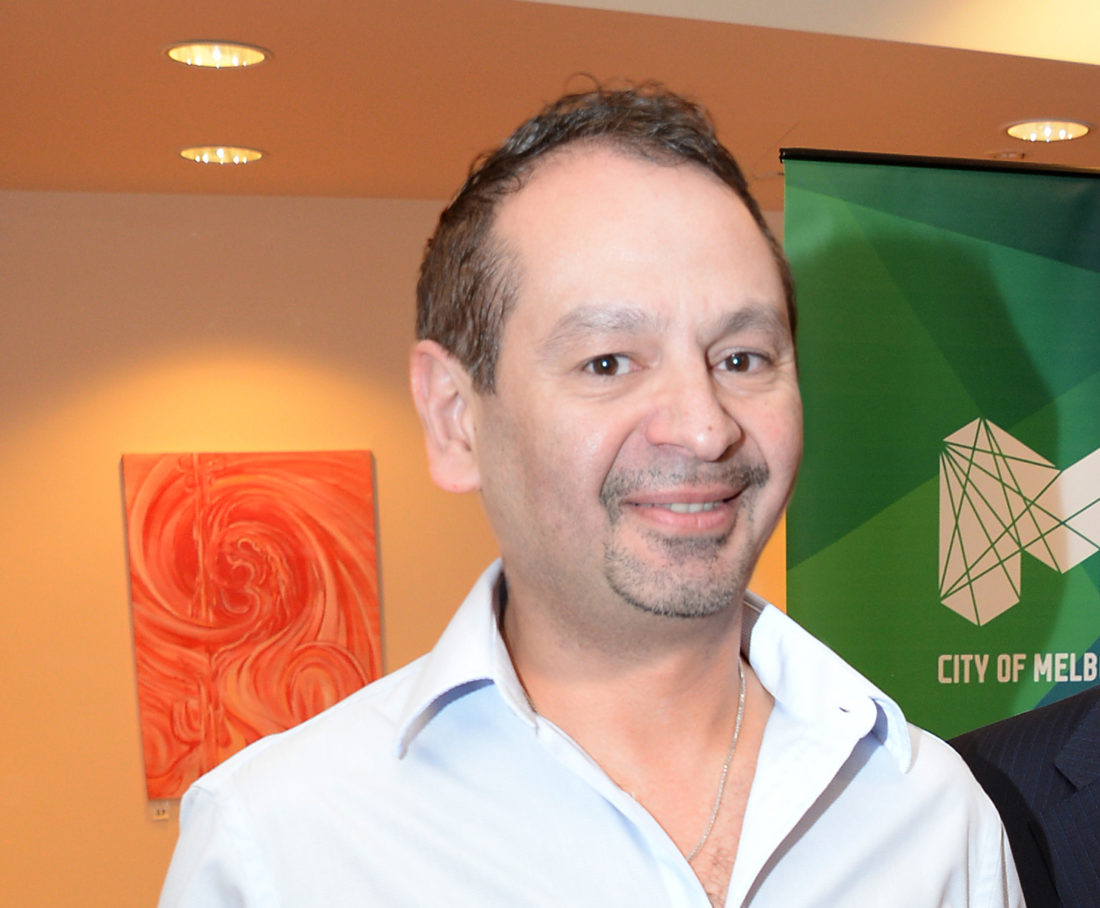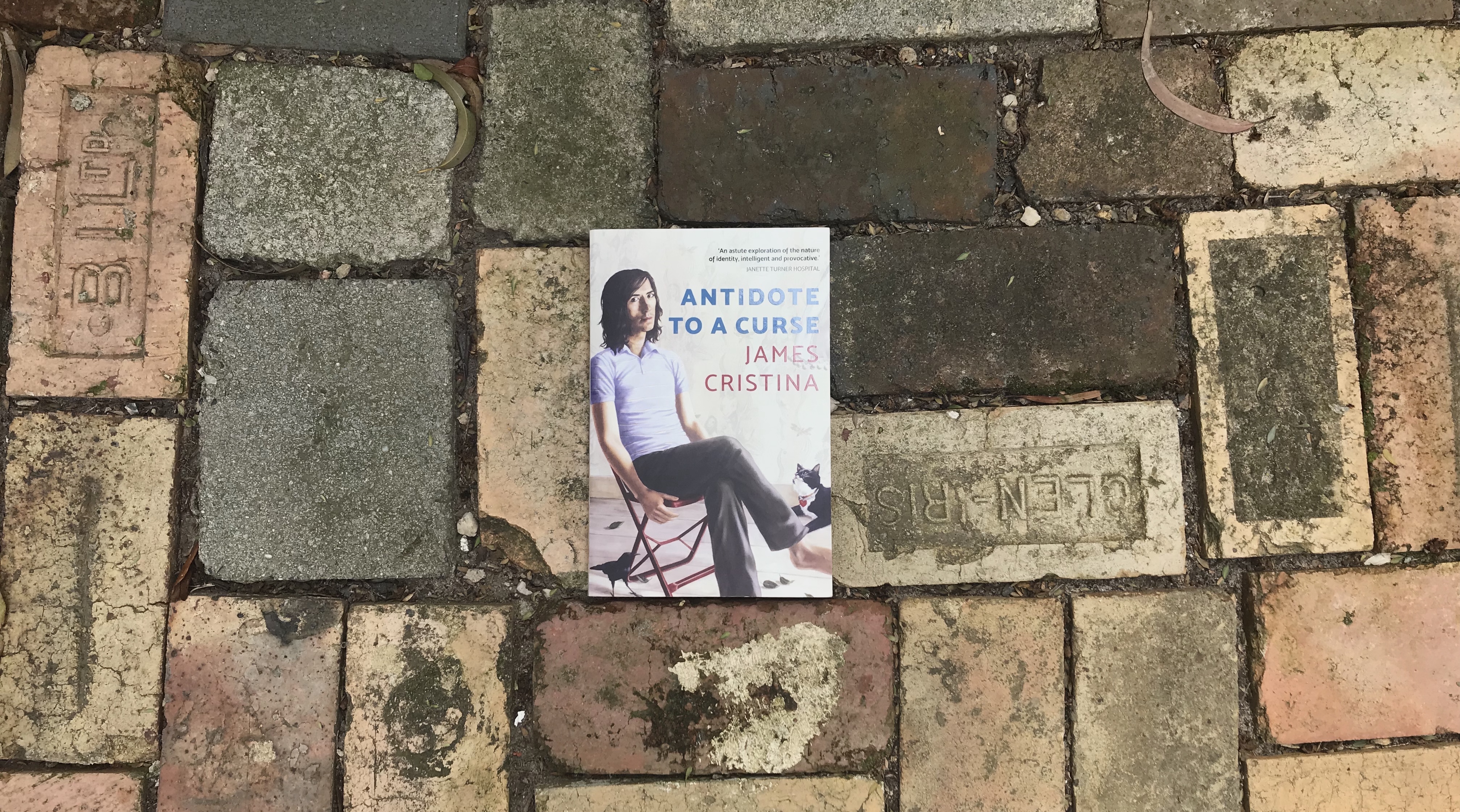MUBA 19 Spotlight: ‘Antidote to a Curse’ by James Cristina
The Small Press Network is pleased to introduce Antidote to a Curse by debut author James Cristina: one of the shortlisted books for the 2019 Most Underrated Book Award.
Antidote to a Curse follows Silvio Portelli, a writer and teacher who has returned from his travels in Europe. The novel straddles two worlds: On the one hand, it is set against the backdrop of 1990s Melbourne and delves into Silvio’s encounters with the people he comes across, including his eccentric landlady, and his own relationship with mortality as he awaits the results of an HIV test. On the other, it shifts to Herzegovina, a region introduced to Silvio by a Bosnian immigrant, Zlatko. Their subsequent conversations shape Silvio’s thoughts and, as a result, his new novel.
From the judges:
Transit Lounge publishes some of Australia’s most daring, inventive novels and Antidote to a Curse is no exception. Blending the Bosnian war, an impending AIDS diagnosis, life in 1990s inner Melbourne, giant aviaries and talking cats, Antidote is more of a Soviet-era Eastern European experimental novel than what you’d normally expect from staid, realist Australia. That being said, there is a nod to the traditions of realism in the richly wrought depiction of inner-Melbourne circa 1990 that pays homage to the Greek quarter and some iconic haunts. It’s hard to find any sense of stability—or often, to know what it is you are reading—as Cristina’s narrative shifts and changes under you, but that queasy, feverish feeling of moving ground is what makes this story so rewarding. An exciting new voice and a quietly ambitious book that resurrects the philosophical spectres of desire and trauma, displacement and longing—the curse and … the Antidote.

Interview with Author James Cristina
How was the experience of writing your first novel?
A challenge. I researched HIV and was interested in the ‘12-week window period’. This was the amount of time one would have to wait (in the 1980s & ‘90s) to take a blood test after a potential exposure to determine whether one had caught the virus or not. I was interested in ‘mapping out’ the effect that the three-month wait would have on a person, particularly where the risk was considered high.
I knew I wanted to incorporate several strands that related to different places quite early on so this also involved a lot of research. I researched the 1990s Bosnian war: a brutal, complex war with so many factions. I became so engaged in what I was reading that I knew I could only gain a greater appreciation of the war’s complexity after travelling to Bosnia. I met lots of people and listened to many stories. I also visited many places. The stories and places proved crucial when it came to completing the novel.
What was your inspiration for Antidote to a Curse?
The novel came about with the evocation of the hybrid character ‘Ludovico.’ I had been writing poetry for a writing workshop class run by Judith Rodriguez and this elusive ‘character’ surfaced in a number of poems. I became intrigued with this ‘catlike’ man, this apparent anomaly that didn’t fit in anywhere. I used these poems/subject for a drawing exercise in an art class that I was running at the time. One student, interestingly from the Balkans, came up with an impressive drawing that, I felt, encapsulated the character … Agile, laden with the potential for both simile and metaphor, he appeared adroitly built for poetry. Was it possible to ‘house’ him in a piece of prose? The coinciding of the image and the question provided the inspiration for the novel.
What was your experience like working with Transit Lounge?
A rediscovery. I felt the engagement of being in a writing workshop class (after an absence of many years). After an extract won the Lord Mayor’s Creative Writing Award in 2013 I submitted a draft form of the manuscript to one of the panel judges, Barry Scott, since I was hoping that he would consider the manuscript for Transit Lounge. He provided me with a sensitive reading and a set of ideas that I was more than keen to incorporate. I was impressed by his vision for the manuscript. My engagement with Transit Lounge proved a positive influence.
Who are the writers who have inspired you?
My inspiration has proven to be eclectic. Being a literature major meant that I was exposed to a broad range of writers and genres from quite early on. I completed a Master’s degree in creative writing under the supervision of Janette Turner Hospital and read all of her novels. I learnt that one could employ inventive structures to augment the scope of characters and narratives. I also enjoyed the meta-theme of dislocation running through her work.
I think it’s important to note that I have also been inspired by my studies of music. I completed a BA with a sub-major in musicology at La Trobe University. (I started off in the minor stream in a course called: The Art of Listening.) I was particularly excited, as a student, to discover the ballets of Igor Stravinsky with their rapid shifts in tempo and mood, resulting in bold, ‘fragmented’ structures. I was also influenced by Arnold Schoenberg and Alban Berg—composers dedicated to experimenting beyond established forms.
Do you have any rituals for when you sit down to write?
I like to get out of the home. I often write in the library. Some people like to write in the one location, as do I, but I have often found myself to be spoilt for choice. Melbourne has great libraries. Also, with an interest in travel and my career as an itinerant teacher, I have found change to be constant.

